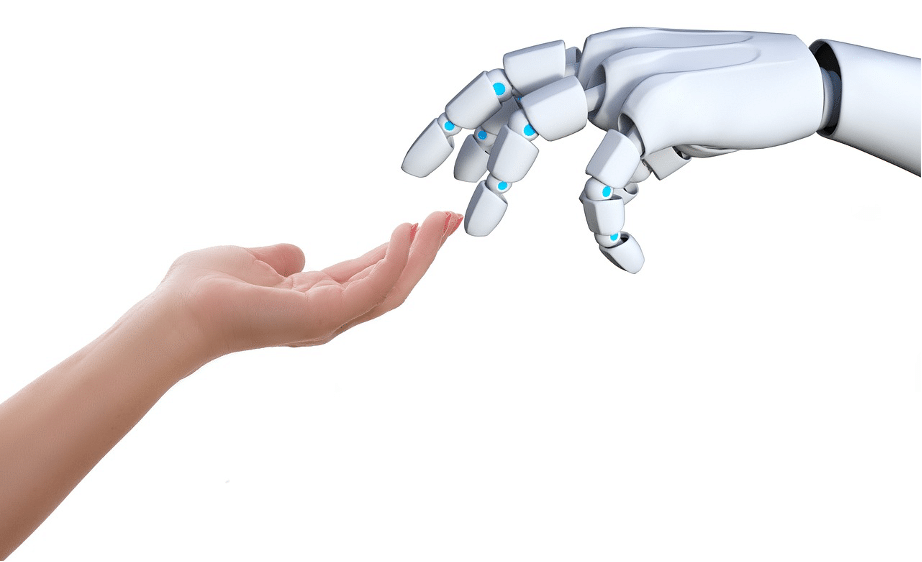Modernity is defined by science, technology, marketing and data as key driving force factors. On the other hand, owing to the emergence of artificial intelligence (AI), there are certain concerns about how it will influence human talent.
This idea of AI taking away jobs and skills from people is slowly dawning on various industries. With this in mind, it is important to note that rather than pose a danger. AI can be an incredible ally of human talent, offering room for growth and eliminating mundane tasks.
Some of the fears surrounding AI come from its ability to surpass humans in certain areas, such as those that require thinking and innovation. This concern about a job becoming obsolete is one of the reasons why some people argue against the wholesome adoption of technology.
The recent study by Experis, a job finder firm, shows that demand for professionals in disciplines such as artificial intelligence has reached insane levels in Latin America, with a gap recruiters cannot close.
In this scenario, the inevitable question arises: Can artificial intelligence fully replace the human skills utilized in workplaces? According to the experts, the solution lies in human beings’ virtues of thought that no machine can duplicate, which are intrinsically linked with creativity, ethics, and critical thinking.
The trick to changing this perception is known that I was not created to replace human skills but to enrich them. AI systems can perform many routine and repetitive tasks, leaving more time for professionals’ creativity, empathy and thinking ethics. Such a change of perspective not only preserves jobs but also stimulates human-machine cooperation.
AI is indeed helping improve many sectors. For example, the entertainment sector. This technology is helping the casino world to make it effortless for users to find their games. The AI collects their tastes and shows them what interests them most. In this way, the user can enjoy and play with real money or otherwise and apply bonuses they consider 100%.
Some specialists claim that humanities enable people to develop not only a wider transverse but also a deeper understanding of the complex world of which we are part.
The digital world requires humanities to be both complete and necessary. They improve the development of soft skills, critical thinking, creativity and ability to deal with problems on different levels of abstraction.
In the technological age, creativity, critical thinking, perceptual skills, and curiosity about human conditions become extra values for new disciplines or roles that enlarge them. Humans are also transverse for people, but humanity can provide great benefits to anyone who wants more information.
Hazardous work inspection under hostile conditions or interventions in emergencies can be accomplished through the help of AI. Due to its advanced sensors and the capability of analyzing vast amounts of data in real-time, AI can perform these tasks more efficiently and safely, reducing damage risk to human professionals.
The application of artificial intelligence is instrumental to hazardous environments such as space exploration, deep-sea mining or natural disaster response. For instance, robots with AI technology can operate in highly contaminated and hazardous locations, performing reconnaissance or rescue missions without losing human life. This helps professionals avoid dangerous situations and enables a quick and efficient response to critical instances.
Education is, therefore, the cornerstone of changing this negative attitude towards AI. Understanding and applying technology, even in humanities disciplines, as a part of academic programs can make students perceive AI as an instrument to advance their abilities.
The business choice should also clarify what AI means and elaborate on how it can ensure the advancement of human resources. Adopting training programs that encourage staffers’ adjustment in the face of AI deployment is vital. It can change the overall perception gradually by demonstrating concrete illustrations of how technology will help to perform tasks, increase efficiency and allow for innovation.
To sum up, artificial intelligence should not be considered a veto but an asset that could augment human abilities and solve dangerous tasks much better. With appropriate ethical integration of technology and an informed society about its potential, we can all create a world where man-machine collaboration is the essence of future progress.
This emphasizes the deliberate implementation of artificial intelligence, coupled with a rational appreciation of its advantages and disadvantages, to evolve towards an age where technology is in harmony with human competence being the primary source driving innovation and environmental sustainability.

